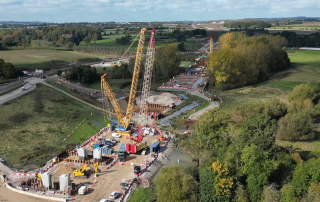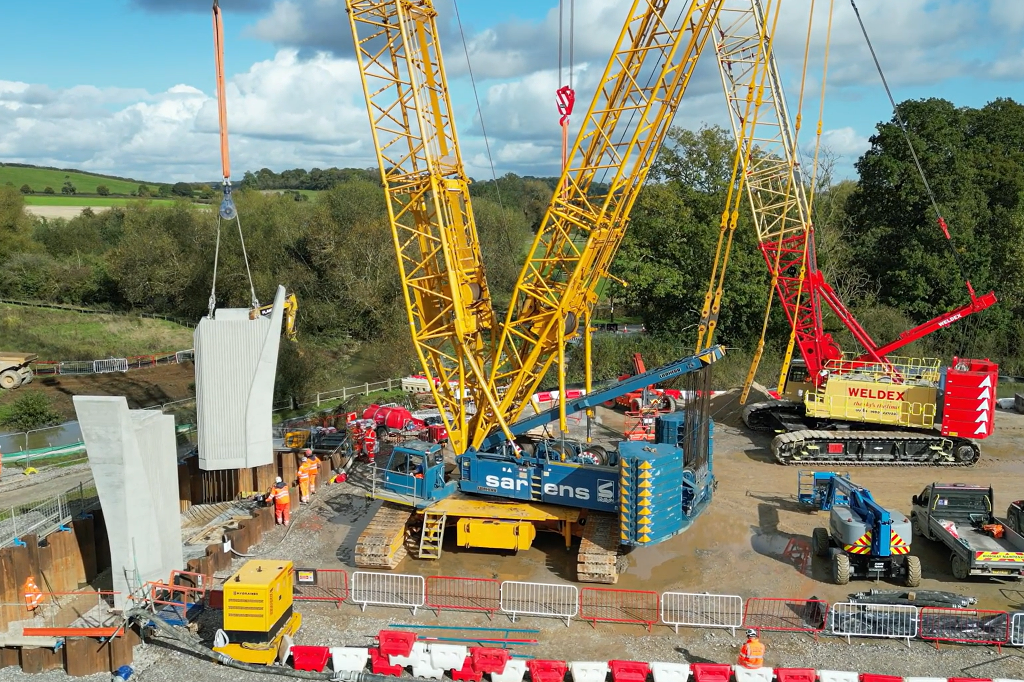The 515-metre-long Edgcote viaduct will carry the HS2 railway across the floodplain of the River Cherwell, south of Chipping Warden in Northamptonshire.
The structure was redesigned just last year, copying the approach used for HS2’s Thame Valley viaduct near Aylesbury, reducing the amount of concrete and steel in the viaduct, with the piers, beams, deck planks and parapet manufactured offsite in Kent
Instead of five beams per span, secured with concrete poured in situ, the team will use just two larger ‘U’ shaped beams per span, secured directly to the next pair of beams. While not significantly changing the height or length of the viaduct, this structural change reduces the number of lorry movement and speeds up construction. The main savings are from transport rather than materials.
At between six and eight metres high, the viaduct will be supported by 20 pairs of pre-cast concrete piers. These will be lifted into position with their steel reinforcing rods slotted into prepared sleeves within the pile caps. The gaps are then sealed with grout.
The variation for Thame Valley and Edgcote viaducts was proposed to HS2 Ltd by Spanish companies FC Civils Solutions and pre-cast firm Pacadar. FC Civils Solutions is a Ferrovial company and Ferrovial is the F in EKFB, the consortium acting as main contractor for these structure.
FC Civils Solutions was given the build contract for both viaducts, as subcontractor to EKFB. Pacadar is casting the concrete components at its yard at Thamesport on the Isle of Grain in north Kent.
This two U-beam system has been in use in Spain for a long time. Spanish engineers had to pioneer precast concrete solutions after the civil war because it had no steel industry. The Madrid-Seville high speed line, which opened in 1992, is all pre-cast concrete structures with this type of girder.
HS2 Ltd senior project manager Suhel Uddin said: “The success of the Thame Valley viaduct design shows that a two-beam approach can bring significant benefits for viaducts of this length – speeding up construction, boosting efficiency and improving safety on site by reducing the amount of working at height.”
EKFB senior project manager Dalvier Chana said: “We were able to reduce the need for temporary works by opting for quality precast piers to support the infrastructure. In turn this has helped us to achieve time-related delivery savings. Thanks to the team for always striving to find the optimum approach and for working collaboratively to achieve this goal.”
Recent few weeks have also seen progress at HS2’s other major viaducts, with the completion of the project’s first viaduct – at Highfurlong Brook in Northamptonshire – and the completion of deck assembly at the Colne Valley Viaduct, which has now become the longest railway bridge in the UK.


